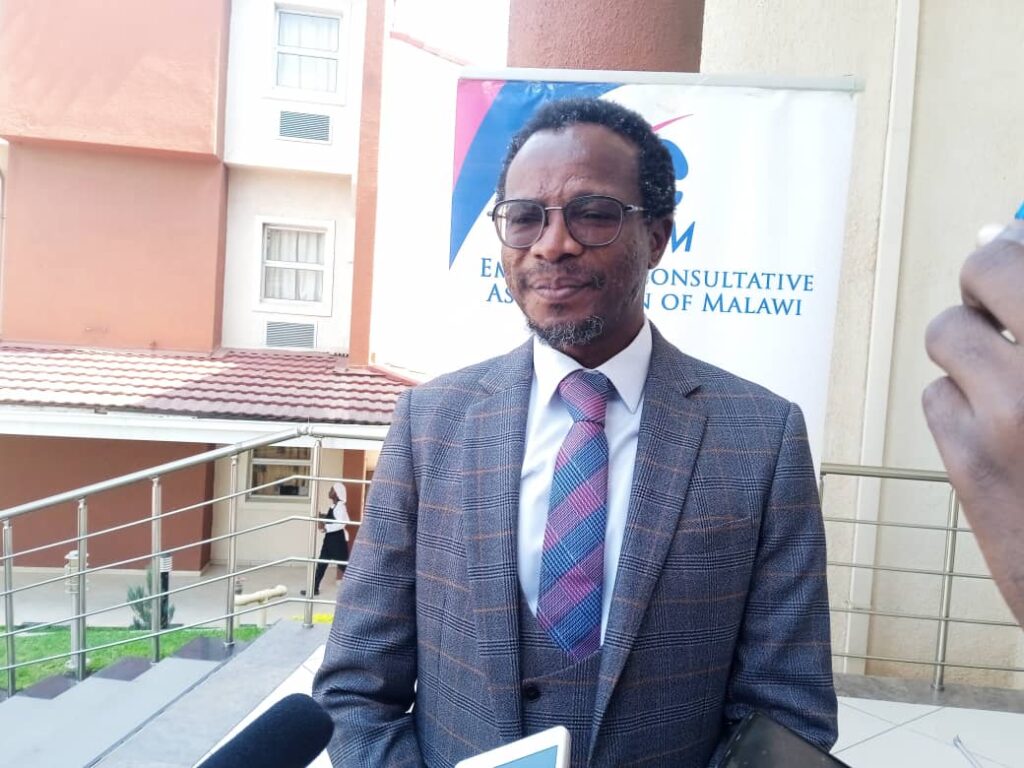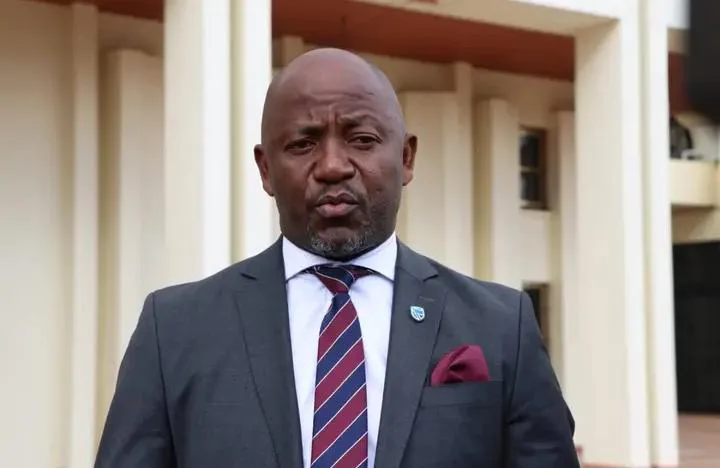Prominent banker and business connoisseur, Benjamin Wandawanda, has won a case in which he sued his former employer, Standard Bank Plc for unfair dismissal and for breaching his constitutional rights and applicable labour laws.
Fondly called Ben, Wandawanda, an astute business executive, who worked for the bank for 12 years both locally and international, was Head of Business Development in Malawi at the time of his inequitable dismissal.
Ben Wandawanda, who is currently Chief Advisor to the President of Malawi, Dr. Lazarus McCarthy Chakwera on Foreign Direct Investments & Financial Services is happy with the court determination.
“Justice has been served,” he said.
According to a judgement by the Industrial Relations Court Chairperson Austin Msowoya which we have seen, the bank declared his position redundant and terminated his contract of employment as the bank was restructuring its organization to improve operations and optimize its competitiveness and profitability.

However, Wandawanda’s lawyer Professor Dan Kuwali argued that when the bank declared his position redundant and terminated his employment, they acted unilaterally and did not follow their own established procedure.
Professor Kuwali contended that Standard Bank through its Chief Executive Officer, Phillip Madinga in his action, acted ultra vires and was in breach of their redundancy policy and that they also breached his rights under the Constitution and applicable labour laws and that they did not comply with international obligations meant to uphold employee rights and mitigate the debilitating social and economic Impacts of redundancies and retrenchments.
Wandawanda joined Standard Bank in January 2007 as Head of Business Banking. He was later transferred to Kenya as Head of Business Banking for Kenya and South Sudan, where he received several Excellence in Performance awards, including Sales Manager of the Year in 2017 and Best Commercially Astute Banking Executive of the Year in 2018.
While in Kenya, his contract was renewed twice more until 2019 when he was repatriated to re-join Standard Bank Malawi as their Head of Business Development in Malawi and this is a testament that Wandawanda was a star performer hence the awards.

Again, in the six years he spent in Kenya, Wandawanda received performance-based bonuses, cash bonuses, and share Incentive schemes totalling MK17 million in 2013, MK49.2 million in 2015, MK89 million in 2016, MK138.9 million in 2017, and MK143 million in 2018.
About half a year after his return to Malawi, around January of 2020, Wandawanda was ostensibly subjected to a Performance Improvement Plan that lasted some twelve weeks or, so which was successfully completed around March of that same year.
It was also in January of that year, continuing through the months after Wandawanda’s completion of his Performance Improvement Plan that Standard Bank purportedly initiated and carried out the organizational restructuring that resulted in Wandawanda’s position being declared redundant.
By July of that year, Mr. Wandawanda’s contract was terminated.
On the other hand, Standard Bank contended that terminating the contract was necessary on account of their organizational restructuring, that Wandawanda’s position was no longer needed in the section he was located and that he lacked the skills and competence to be retained or reassigned anywhere else within bank’s new operating structure, both locally and internationally.

The bank conceded, however, that in the manner they declared his position redundant, they might have inadvertently failed to follow some procedures required by their redundancy policy or mandated by law.
In his judgement dated November 1, 2024, Msowoya noted that in the manner the manner the bank declared Wandawanda’s position redundant and proceeded to terminate his contract, both on the facts and on the applicable laws, did dismiss him unfairly.
Ruled Msowoya: “I found that not only did respondents breach their redundancy policy and established procedure, but they also breached applicant’s constitutional rights to fair labour practices, statutory provisions meant to preserve justice and equity in employment associations, best practices in the labour and employment spaces, as well as internationally mandated norms governing due process on retrenchments and redundancies.
“Finally, much as some of the labour conventions Malawi ratified are yet to be domesticated, which respondents repudiate as inapplicable, I nonetheless found that respondents breached these conventions because Malawi is obliged by international law to ensure provisions imposed by these conventions are enforced and complied with under its municipal law.”
Continued Msowoya: “Moreover, and indisputably, these conventions reflect and consolidate globally accepted best practices on due process to safeguard employees against social and economic hardships occasioned by job losses due to retrenchments and redundancies.

“Most notably, the best practices reflected in, and emanating from these conventions have been adopted with approval and are championed by domestic labour authorities such as the Ministry of Labour through guidelines on carrying out retrenchments and redundancies. As such, they cannot be dismissed whimsically out of hand on the pretext they have not been enacted into law domestically.
“On the contrary, as becomes clear in the course of this judgment, they are discernible in the substance and spirit of not only the Employment Act, but also in the jurisprudence developed over the years in cases of unfair dismissal resulting from retrenchments and redundancies,” further reads part of the judgement.
Following the court’s determination, it means the bank will have to pay Wandawanda damages in millions of Kwacha for unfair dismissal.
“I found that not only did respondents breach their redundancy policy and established procedure, but they also breached applicant’s constitutional rights to fair labour practices.”
Austin Msowoya
Chairperson of the Industrial Relations Court.



